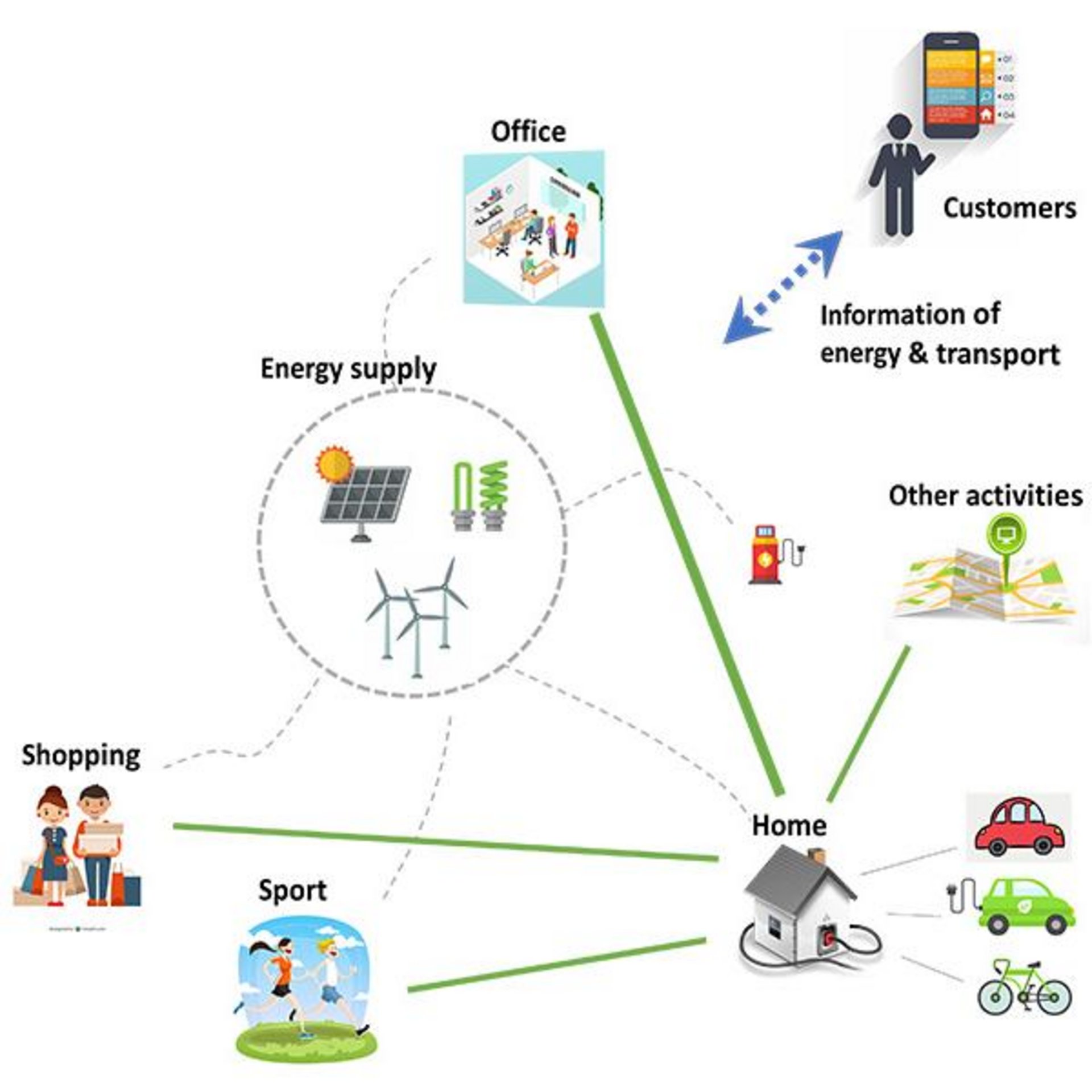DESENT – Smart decision support system for urban energy and transportation
The DESENT project aims at the development, application and dissemination of an integrated decision support system for energy use of buildings and transport, ensuring maximum efficiency with respect to supply and distributed energy generation.
Duration
March 2016 - May 2019Project Manager
DESENT
The DESENT project aims at the development, application and dissemination of an integrated decision support system for energy use of buildings and transport, ensuring maximum efficiency with respect to supply and distributed energy generation.
The specific goal is to develop a smart energy control concept of household/vehicle energy use through the implementation of advanced ICT technology. Using multi-agent simulation, household preferences, energy use and responses to policies/services will be incorporated an integrated activity-travel demand model to predict the energy demand at a high level of temporal and spatial resolution. This system will be complemented with a model of distributed energy generation, which represents the possible interactions among local energy suppliers, grid operators and customers. The system will be implemented in several pilot cities. Experiences will provide the basis to evaluate whether such innovative high-resolution demand predictions provide improved insights into demand flexibility that can be used to balance services in the power grid. This is particularly important in the view of increased penetration of variable renewable generation, electrical mobility and distributed energy generation schemes in cities.

The DESENT project aims at the development, application and dissemination of an integrated decision support system for energy use of buildings and transport, ensuring maximum efficiency with respect to supply and distributed energy generation.
The specific goal is to develop a smart energy control concept of household/vehicle energy use through the implementation of advanced ICT technology. Using multi-agent simulation, household preferences, energy use and responses to policies/services will be incorporated an integrated activity-travel demand model to predict the energy demand at a high level of temporal and spatial resolution. This system will be complemented with a model of distributed energy generation, which represents the possible interactions among local energy suppliers, grid operators and customers. The system will be implemented in several pilot cities. Experiences will provide the basis to evaluate whether such innovative high-resolution demand predictions provide improved insights into demand flexibility that can be used to balance services in the power grid. This is particularly important in the view of increased penetration of variable renewable generation, electrical mobility and distributed energy generation schemes in cities.